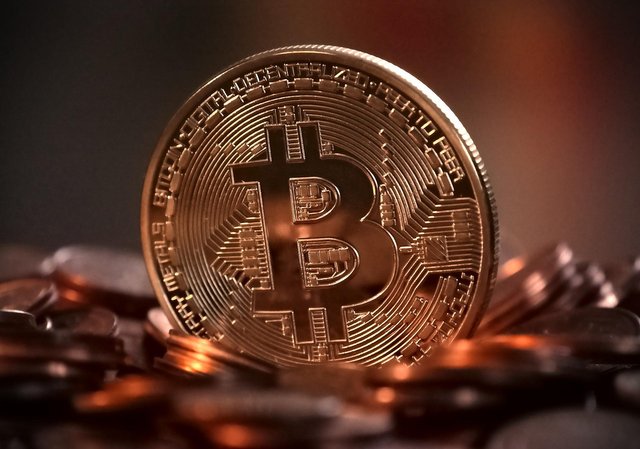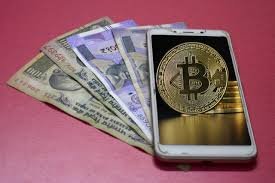What is Real Bitcoin?
Bitcoin is the world's first and most well-known cryptocurrency. It uses a decentralised protocol, cryptography, and a mechanism to obtain global consensus on the status of a periodically updated public transaction ledger termed a "blockchain" to enable peer-to-peer exchange of value in the digital environment.

Bitcoin is a type of digital money that (1) exists independently of any government, state, or financial institution, (2) can be exchanged internationally without the use of a centralised middleman, and (3) has a well-defined monetary policy that is arguably unchangeable.
Bitcoin can be seen of as a political, philosophical, and economic system on a deeper level. This is due to the combination of technological characteristics it incorporates, the large number of participants and stakeholders it engages, and the protocol's modification procedure.
The Bitcoin software system as well as the monetary unit with the ticker sign BTC are both referred to as Bitcoin.

Bitcoin is now a worldwide traded financial asset with daily settlement volume in the tens of billions of dollars, having been launched anonymously in January 2009 to a small number of programmers.
The beginnings, early growth, and evolution of Bitcoin
Bitcoin is built on the concepts outlined in the whitepaper Bitcoin: A Peer-to-Peer Electronic Cash System, published in 2008.
"Any two willing parties can transact directly with each other without the requirement for a trusted third party," according to the study. For the first time, the technologies used solved the 'double spend' problem, allowing for scarcity in the digital environment.
Satoshi Nakamoto is the paper's listed author, a supposed pseudonym for a person or group whose true identity is unknown. On January 9th, 2009, Nakamoto published the first open-source Bitcoin software client, allowing anyone to start using Bitcoin.
The Bitcoin network's initial growth was fueled by its novelty as a new way to trade value in the digital world. Early proponents were mostly 'cypherpunks,' or people who pushed for the employment of strong encryption and privacy-enhancing technologies as a means of bringing about social and political change. However, speculation about Bitcoin's future value quickly became a major driver of adoption.
Over the next decade, the price of bitcoin and the number of Bitcoin users surged in waves. As the legality of Bitcoin and other cryptocurrencies was clarified by regulators in major economies, a large number of Bitcoin exchanges established banking connections, making it simple to convert local currency to and from bitcoin.
.jpg)
What is the purpose of Bitcoin?
Bitcoin is, at its most basic level, a means of exchanging value outside of the traditional financial system. People use Bitcoin to conduct international payments, for example, that are resolved faster, more securely, and with fewer transaction fees than traditional settlement systems like the SWIFT or ACH networks.
Bitcoin may be used to settle even small-value transactions in the early years, when network use was scarce, and compete with payment networks like Visa and Mastercard (which, in fact, settle transactions long after point of sale). Scaling difficulties rendered Bitcoin less competitive as a medium of trade for small-value items as it became more extensively utilised. In summary, due to limited ledger throughput and the lack of second-layer alternatives, settling small-value transactions became prohibitively expensive. This bolstered the argument that Bitcoin's fundamental value is as a gold alternative, or 'digital gold,' rather than as a payment network.
The fundamental characteristics of Bitcoin?
Decentralized: The Bitcoin network is not controlled or owned by anyone, and there is no CEO. Instead, the network is made up of consenting individuals who agree to follow the protocol's rules (which takes the form of an open-source software client). Changes to the protocol must be approved by a majority of the protocol's users, which includes 'nodes,' end users, developers,'miners,' and other industry participants like as exchanges, wallet providers, and custodians.' As a result, Bitcoin is classified as a quasi-political system. Bitcoin is perhaps the most decentralised of the thousands of cryptocurrencies in existence, a quality that is seen to reinforce its position as clean collateral for the global economy.
Distributed: All Bitcoin transactions are recorded on a public ledger known as the "blockchain." People who willingly store copies of the ledger and run the Bitcoin protocol software power the network. These 'nodes' help to ensure that transactions are correctly propagated over the network by adhering to the protocol's rules as established by the software client. There are currently over 80,000 nodes spread across the globe.
Transparent: According to the protocol's principles, the addition of new transactions to the blockchain record and the state of the Bitcoin network at any one time (in other words, the 'truth' of who owns how much bitcoin) are determined by agreement and in a transparent manner.
Peer-to-peer: Payments are made directly from one person or business to another, despite the fact that nodes store and propagate the network's state (the'truth'). This eliminates the requirement for a 'trusted third party' to operate as a middleman.
Permissionless: There are no gatekeepers and no need to create a 'Bitcoin account,' so anyone can use Bitcoin. The network will confirm any and all transactions that follow the protocol's rules using the established consensus procedures.
Pseudo-anonymous. Bitcoin transactions aren't automatically linked to personal information. Instead, transactions are linked to addresses, which are alphanumeric characters produced at random.
Censorship Resistant: It is difficult for authorities to prohibit individuals from using Bitcoin or take their assets because all Bitcoin transactions that meet the protocol's rules are legitimate, transactions are pseudo-anonymous, and users control the 'key' to their bitcoin holdings. This carries enormous consequences for economic freedom, and may even operate as a counteracting force to authoritarianism globally.
Public: All Bitcoin transactions are recorded and publicly available for anybody to observe. While this virtually eliminates the possibility of fraudulent transactions, it also allows individual identities to be linked to specific Bitcoin addresses in some cases. Although there are several attempts underway to improve Bitcoin's privacy, their acceptance into the protocol is ultimately subject to Bitcoin's quasi-political governance process.

Bitcoins Economic Features
Fixed Supply: One of the major factors in the Bitcoin protocol is that the supply will grow over time, eventually reaching 21 million coins. This fixed and known total quantity, it is said, makes Bitcoin a 'hard asset,' one of numerous attributes that has led to its perceived value from an investing standpoint.
Disinflationary: The pace that new bitcoins are added to the circulating supply gradually lowers along a specified timeline that is written into the code. The supply pace is roughly decreased in half every four years, starting at 50 bitcoins each block (a new block is created every 10 minutes). In May 2020, the third halving reduced the issuance rate from 12.5 to 6.25 bitcoins per block.
Who decides what Bitcoin is?
Bitcoin isn't a one-dimensional protocol. It can and has incorporated changes over the course of its existence, and it will continue to do so. Although there are several formalised mechanisms for updating Bitcoin (see "How does Bitcoin governance work? "), the protocol's governance is ultimately reliant on discourse, persuasion, and choice. To put it another way, the public decides what Bitcoin is.
There have been considerable disputes among the community on the route that Bitcoin should follow in various cases. When such conflicts cannot be resolved by discourse and persuasion, some users may choose to recognise a different version of Bitcoin on their own will.
Your post was upvoted and resteemed on @crypto.defrag